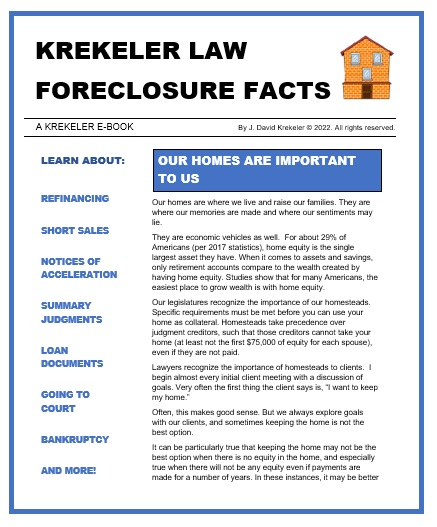
Let’s start with what debts you cannot discharge. Those would be child support and maintenance. These debts cannot be discharged in any form of bankruptcy.
No debts arising from a divorce can be discharged in a Chapter 7. So if you are planning on discharging some of the debts awarded to you in a divorce or which you were ordered to pay, you will need to proceed under Chapter 13.
While child support and maintenance cannot be discharged in Chapter 13, other types of divorce debts can be discharged. This often leads to litigation over the true nature of debts. The debtor argues that any particular debt is not in the nature of support or maintenance, while the other, non-paying spouse argues that the debt actually is in the nature of support or maintenance.
Many family law attorneys simply build in language into what seems to be every settlement or judgment that the division of debts is in the nature of support and is not dischargeable in bankruptcy. This is often a poor practice for both parties. We prefer to see a detailed analysis of the needs of the parties and assign the debts in that fashion, making debts non-dischargeable only when there really is a need for support or maintenance. The spouse who is not paying the assigned debts might well benefit more by having an additional award of money, as opposed to having the other spouse pay some debt.
The labels or descriptions put on the debt by a Family Court, or by the parties in a Marital Settlement Agreement, are not binding on the Bankruptcy Court. The bankruptcy court is tasked with determining the true nature of the obligation.
This is usually decided by looking at all of the facts and circumstances. Many times the divorcing parties and their counsel have created a balance sheet… a list of the assets and liabilities. They often try to equalize the net worth of the parties. When debts are assigned in this fashion, they are probably not in the nature of maintenance or support.
We can often achieve good results by doing the detail work which is so essential in legal practice. I once represented a woman who was owed about $20,000 from her ex-husband. The Marital Settlement Agreement said the $20,000 debt was an equalization payment, to make sure both parties had roughly the same net worth following the divorce.
Then the husband filed Chapter 13 and sought to discharge the $20,000 debt. We objected, claiming that the debt was actually in the nature of maintenance. We were able to bolster our argument because we found emails between the parties. The husband had emailed our client, saying that instead of paying her maintenance he would pay the $20,000. That was sufficient to convince the court that the obligation really was in the nature of maintenance, and had been manipulated and labeled as a property division debt.

